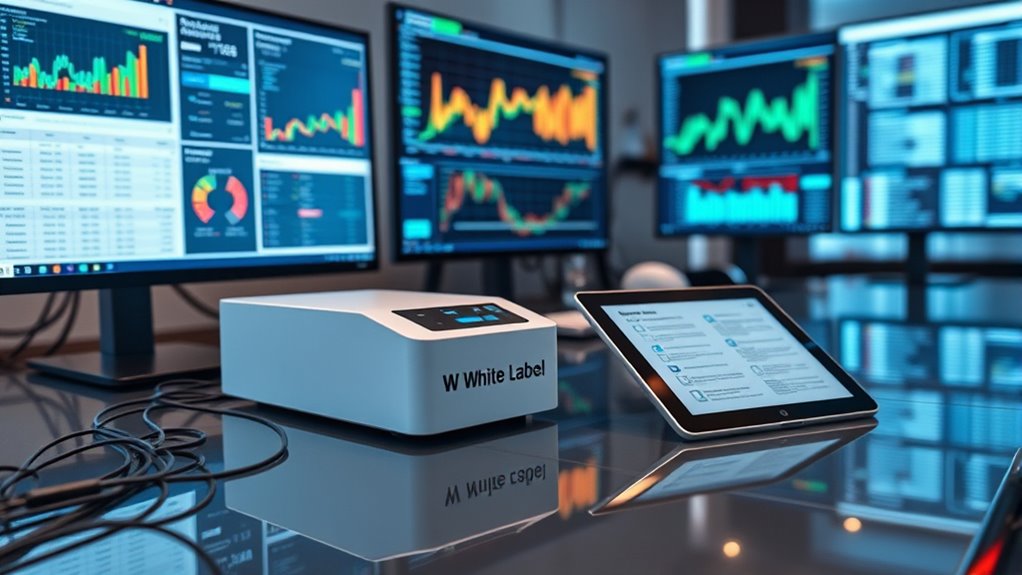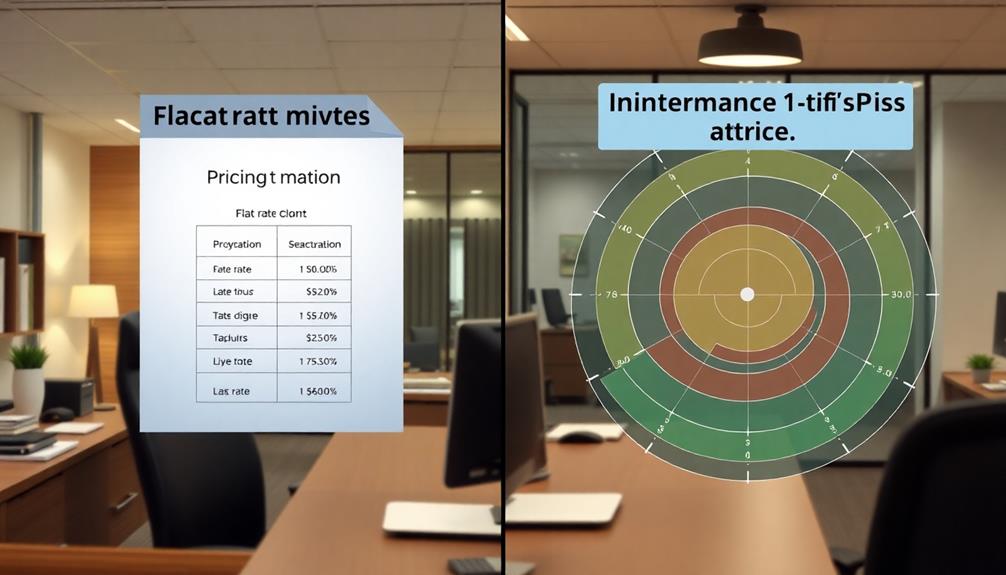White-label PSPs can give you a quick path to market by simplifying setup, branding, and deployment, helping you launch faster. However, skipping thorough onboarding, fraud prevention, and compliance checks can expose your platform to risks like fraud, legal issues, and reputational damage. To maximize benefits and avoid pitfalls, it’s essential to evaluate providers carefully and implement strong procedures—if you want to protect your business, keep exploring the details below.
Key Takeaways
- White-label PSPs enable rapid market entry with customizable payment solutions, saving time and resources.
- They require thorough merchant onboarding processes to prevent fraud and ensure compliance.
- Rushing deployment without proper checks can expose platforms to legal risks and reputational damage.
- Continuous monitoring and adherence to evolving regulations are essential to avoid compliance headaches.
- Selecting providers with robust fraud prevention and compliance features maximizes benefits and minimizes risks.

Have you ever wondered how some businesses offer seamless payment experiences without building their own infrastructure? The answer often lies in white-label PSPs—pre-built payment solutions that you can rebrand and integrate quickly. These platforms allow you to provide your customers with a smooth checkout process without investing heavily in developing your own payment system from scratch. Instead, you leverage the infrastructure of a third-party provider, saving you time and resources. But while this approach can fast-track your entry into the market, it also comes with its own set of challenges, especially around merchant onboarding and fraud prevention.
White-label PSPs enable quick, seamless payment solutions but require careful focus on onboarding and fraud prevention.
When you opt for a white-label PSP, merchant onboarding becomes a critical step. The provider’s system handles the setup, verification, and compliance checks needed to onboard new merchants. This process needs to be swift yet thorough to ensure you’re not exposing your business to unnecessary risks. A good white-label solution streamlines onboarding, allowing you to approve or reject merchants quickly, which keeps your sales pipeline moving. But it also requires robust verification processes to weed out high-risk merchants, ensuring your platform isn’t exploited for fraud. If the onboarding process isn’t rigorous enough, you risk allowing malicious actors to access your payment ecosystem, damaging your reputation and exposing you to financial losses.
Fraud prevention is another essential aspect that you need to pay close attention to when using a white-label PSP. Since these platforms process a high volume of transactions for multiple merchants, they can become attractive targets for fraudsters. You want a provider that employs advanced fraud detection tools—such as machine learning algorithms, real-time transaction monitoring, and address verification systems—to safeguard your business. Without these safeguards, you could face chargebacks, financial penalties, or even legal issues. A white-label PSP with strong fraud prevention measures not only protects your revenue but also instills confidence in your customers and merchants. Moreover, staying updated on regulatory changes is crucial to maintaining compliance and avoiding future legal complications.
While white-label PSPs can be a quick and efficient way to get your payment services up and running, they aren’t without their pitfalls. You need to carefully evaluate the provider’s capabilities in merchant onboarding and fraud prevention. Rushing into a solution without proper checks can lead to compliance headaches down the line, especially as regulations tighten worldwide. So, weigh the benefits of rapid deployment against the importance of security and compliance. Ultimately, a well-chosen white-label PSP can accelerate your market entry, but only if you prioritize thorough onboarding procedures and robust fraud prevention measures.
Frequently Asked Questions
How Do White-Label PSPS Impact Customer Trust?
Customer perception plays a crucial role in your brand’s success, and white-label PSPs can influence this trust. When you use a white-label provider, your brand’s integrity depends on their security and reliability. If they maintain high standards, customers see your business as trustworthy. However, if issues arise, it can harm your reputation. So, choosing a reputable white-label PSP helps protect your customer trust and reinforces positive perception.
What Are the Hidden Costs of White-Label PSP Solutions?
When considering white-label PSP solutions, you should be aware of hidden costs that impact your cost management. These include ongoing licensing fees, technical support, and maintenance expenses that often aren’t upfront. Additionally, you might need to allocate resources to branding strategies to guarantee seamless integration and customer experience. Failing to account for these costs can lead to budget overruns, making your initial savings less advantageous over time.
Can Small Businesses Benefit From White-Label PSPS?
You might think small businesses can’t take advantage of white-label PSPs, but you’d be surprised. They offer a powerful shortcut to market entry, helping you launch quickly without building from scratch. Plus, you retain brand control, ensuring your brand’s identity stays strong. While there are hidden costs, smart choices can make white-label solutions a game-changer, opening doors to growth you never thought possible.
How Do White-Label PSPS Handle Data Security and Privacy?
You might wonder how white-label PSPs safeguard your data. They use robust data encryption to secure sensitive information and strict access controls to prevent unauthorized access. These measures ensure your customers’ privacy is maintained and regulatory requirements are met. When working with a white-label PSP, you benefit from their expertise in data security, giving you peace of mind while focusing on growing your business.
What Are the Key Differences Between White-Label and Branded PSPS?
When comparing white-label and branded PSPs, you’ll find that branding strategies differ markedly. With white-label PSPs, you get extensive customization options, allowing you to tailor the platform to your brand’s look and feel, while branded PSPs keep the brand identity front and center. White-label solutions offer flexibility to build your own experience, whereas branded PSPs provide a more straightforward approach with less customization but stronger brand recognition.
Conclusion
Choosing a white-label PSP is like opening a door to opportunity, but beware—the shadows of compliance challenges can lurk behind. It’s a tempting shortcut to market, yet without careful navigation, you risk stormy waters. Think of it as a delicate dance between speed and security; if you lead with caution, you’ll find a rhythm that keeps your business safe and soaring. The path is yours—walk it wisely to turn quick entry into lasting success.










